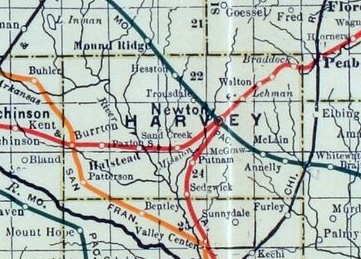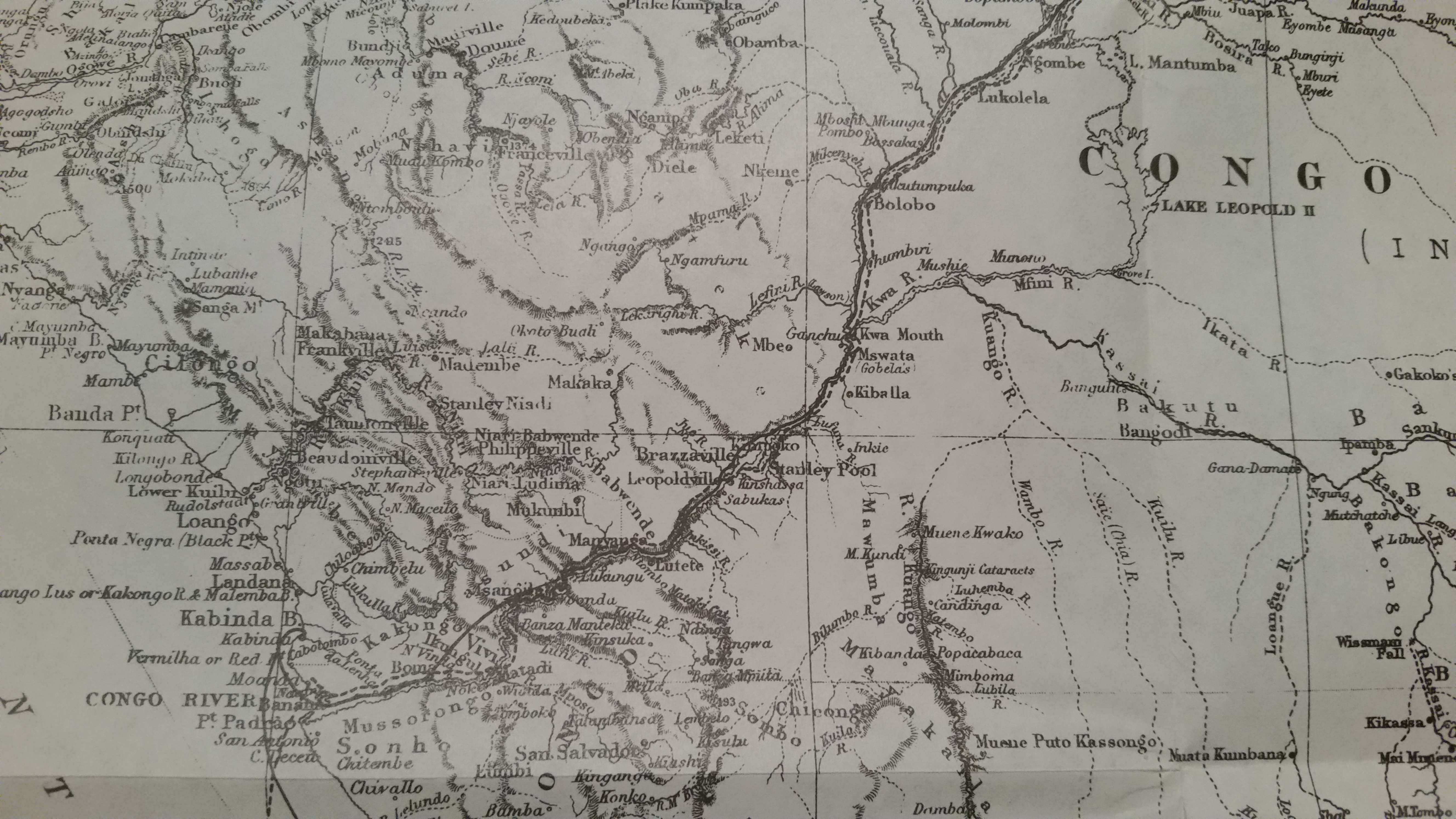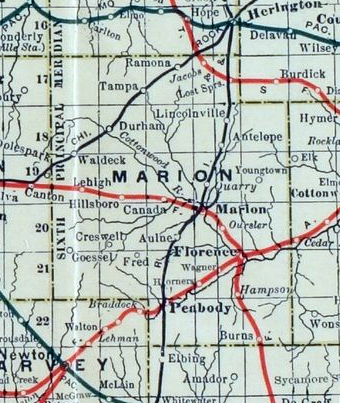|
Waldo E. Harder
Waldo Elmer Harder (1918–1976) was the sixth University president, president of Grace University (then Grace Bible Institute) in Omaha, Nebraska, USA. He held an undergraduate degree from Wheaton College (Illinois), Wheaton College and M.A. and Th.M. degrees from Columbia International University, Columbia Bible College and Seminary. He also studied at Northern Baptist Theological Seminary in Chicago. His career marks his commitments to Christian missions and Christian education. He worked as a missionary among the Hopi people of Arizona from 1943-1946. He was the first superintendent of Berean Academy, a private Christian secondary school in Elbing, Kansas. From 1951 through 1961 he directed the Institut Biblique, a pastoral training institute of the Communauté Mennonite au Congo (then Congo Inland Mission) in the Democratic Republic of Congo (then Belgian Congo). The Institute Biblique is also known as the Kalonda Bible Institute and is located at Kalonda Station, jus ... [...More Info...] [...Related Items...] OR: [Wikipedia] [Google] [Baidu] |
University President
A chancellor is a leader of a college or university, usually either the executive or ceremonial head of the university or of a university campus within a university system. In most Commonwealth of Nations, Commonwealth and former Commonwealth nations, the chancellor is usually a ceremonial non-resident head of the university. In such institutions, the chief executive of a university is the vice-chancellor, who may carry an additional title such as ''president'' (e.g. "president & vice-chancellor"). The chancellor may serve as chairperson of the governing body; if not, this duty is often held by a chairperson who may be known as a pro-chancellor. In many countries, the administrative and educational head of the university is known as the president, principal (academia), principal or rector (academia), rector. In the United States, the head of a university is most commonly a university president. In U.S., university systems that have more than one affiliated university or campus, ... [...More Info...] [...Related Items...] OR: [Wikipedia] [Google] [Baidu] |
Belgian Congo
The Belgian Congo (french: Congo belge, ; nl, Belgisch-Congo) was a Belgian colony in Central Africa from 1908 until independence in 1960. The former colony adopted its present name, the Democratic Republic of the Congo (DRC), in 1964. Colonial rule in the Congo began in the late 19th century. King Leopold II of the Belgians attempted to persuade the Belgian government to support colonial expansion around the then-largely unexploited Congo Basin. Their ambivalence resulted in Leopold's establishing a colony himself. With support from a number of Western countries, Leopold achieved international recognition of the Congo Free State in 1885. By the turn of the century, the violence used by Free State officials against indigenous Congolese and a ruthless system of economic exploitation led to intense diplomatic pressure on Belgium to take official control of the country, which it did by creating the Belgian Congo in 1908. Belgian rule in the Congo was based on the "colonial tr ... [...More Info...] [...Related Items...] OR: [Wikipedia] [Google] [Baidu] |
1918 Births
This year is noted for the end of the World War I, First World War, on the eleventh hour of the eleventh day of the eleventh month, as well as for the Spanish flu pandemic that killed 50–100 million people worldwide. Events Below, the events of World War I have the "WWI" prefix. January * January – 1918 flu pandemic: The "Spanish flu" (influenza) is first observed in Haskell County, Kansas. * January 4 – The Finnish Declaration of Independence is recognized by Russian Soviet Federative Socialist Republic, Soviet Russia, Sweden, German Empire, Germany and France. * January 9 – Battle of Bear Valley: U.S. troops engage Yaqui people, Yaqui Native American warriors in a minor skirmish in Arizona, and one of the last battles of the American Indian Wars between the United States and Native Americans. * January 15 ** The keel of is laid in Britain, the first purpose-designed aircraft carrier to be laid down. ** The Red Army (The Workers and Peasants Red Army) ... [...More Info...] [...Related Items...] OR: [Wikipedia] [Google] [Baidu] |
Wheaton College (Illinois) Alumni , a private secular, coeducational, liberal arts college in Norton, Massachusetts
{{schooldis ...
Wheaton College may refer to: * Wheaton College (Illinois), a private Christian, coeducational, liberal arts college in Wheaton, Illinois * Wheaton College (Massachusetts) Wheaton College is a private liberal arts college in Norton, Massachusetts. Wheaton was founded in 1834 as a female seminary. The trustees officially changed the name of the Wheaton Female Seminary to Wheaton College in 1912 after receiving ... [...More Info...] [...Related Items...] OR: [Wikipedia] [Google] [Baidu] |
Heads Of Universities And Colleges In The United States
A head is the part of an organism which usually includes the ears, brain, forehead, cheeks, chin, eyes, nose, and mouth, each of which aid in various sensory functions such as sight, hearing, smell, and taste. Some very simple animals may not have a head, but many bilaterally symmetric forms do, regardless of size. Heads develop in animals by an evolutionary trend known as cephalization. In bilaterally symmetrical animals, nervous tissue concentrate at the anterior region, forming structures responsible for information processing. Through biological evolution, sense organs and feeding structures also concentrate into the anterior region; these collectively form the head. Human head The human head is an anatomical unit that consists of the skull, hyoid bone and cervical vertebrae. The term "skull" collectively denotes the mandible (lower jaw bone) and the cranium (upper portion of the skull that houses the brain). Sculptures of human heads are generally based on ... [...More Info...] [...Related Items...] OR: [Wikipedia] [Google] [Baidu] |
Newton, Kansas
Newton is a city in and the county seat of Harvey County, Kansas, United States. As of the 2020 census, the population of the city was 18,602. Newton is located north of Wichita. The city of North Newton is located immediately north and exists as a separate political entity. Newton is located at the intersection of Interstate 135, U.S. Route 50, and U.S. Route 81 highways. History 19th century For millennia, the land now known as Kansas was inhabited by Native Americans. In 1803, most of modern Kansas was secured by the United States as part of the Louisiana Purchase. In 1854, the Kansas Territory was organized, then in 1861 Kansas became the 34th U.S. state. In 1872, Harvey County was founded. In 1871, the Atchison, Topeka and Santa Fe Railway extended a main line from Emporia westward to Newton by July 1871. The town soon became an important railroad shipping point of Texas cattle. The city was founded in 1871 and named after Newton, Massachusetts, home of so ... [...More Info...] [...Related Items...] OR: [Wikipedia] [Google] [Baidu] |
KGBI-FM
KGBI-FM (100.7 MHz) is a non-commercial FM radio station broadcasting a Contemporary Christian radio format. Licensed to Omaha, Nebraska, United States, the station serves the Omaha and Lincoln, Nebraska radio markets. The station is owned and operated by Northwestern Media, a ministry of the University of Northwestern - St. Paul. KGBI's studios are located on Burt Street, near North 120th Street and Dodge Road, in West Omaha, while its transmitter is located at the Omaha master antenna farm at North 72nd Street and Crown Point Avenue. History Grace Bible Institute Grace Bible Institute began in 1943 in Omaha as an extension of Oklahoma Bible Academy, originally in Meno, Oklahoma. Both institutions were affiliated with the General Mennonite Conference, and the addition of an Omaha school was intended to give a boost to enrollment by being based in a larger city with more employment opportunities for its students. One of Grace Bible Institute's outreaches began during the ear ... [...More Info...] [...Related Items...] OR: [Wikipedia] [Google] [Baidu] |
Kasai River
The Kasai River ( ; called Cassai in Angola) is a tributary (left side) of the Congo River, located in Central Africa. The river begins in central Angola and flows to the east until it reaches the border between Angola and the Democratic Republic of the Congo, where it turns north and serves as the border until it flows into the DRC. From Ilebo, between the confluences with Lulua river and Sankuru river, the Kasai river turns to a westerly direction. The lower stretch of the river from the confluence with Fimi river, is known as the Kwa(h) River, before it joins the Congo at Kwamouth northeast of Kinshasa. The Kasai basin consists mainly of equatorial rainforest areas, which provide an agricultural land in a region noted for its infertile, sandy soil. It is a tributary of Congo river and diamonds are found in it. Around 60% of diamonds in Belgium go from Kasai river for cutting and shaping. Exploration Henry Morton Stanley reached the confluence on 9 March 1877, calling the rive ... [...More Info...] [...Related Items...] OR: [Wikipedia] [Google] [Baidu] |
Tshikapa
Tshikapa is the capital city of Kasai Province in the Democratic Republic of the Congo. The city is located north of the Angolan border and west of Kananga at the confluence of the Tshikapa and Kasai rivers. According to records published by the Utrecht University library, the population of the city has grown from 38,900 in 1970 to 180,900 in 1994. However, the two recent Congo wars have caused great flux in population rendering current figures unreliable. Tshikapa has been a site of diamond mining since its founding in the early 20th century. The city was founded by Forminière, an American/Belgian mining consortium which discovered diamonds near this location in the early 1900s. The city is served by the Tshikapa Airport. The diamond industry is the main form of income for the city. Despite this, it is poor and few of the roads are paved. History Tshikapa was founded in the early 1900s by the American-Belgian mining consortium Forminière. The city grew rapidly as result of th ... [...More Info...] [...Related Items...] OR: [Wikipedia] [Google] [Baidu] |
Democratic Republic Of Congo
The Democratic Republic of the Congo (french: République démocratique du Congo (RDC), colloquially "La RDC" ), informally Congo-Kinshasa, DR Congo, the DRC, the DROC, or the Congo, and formerly and also colloquially Zaire, is a country in Central Africa. It is bordered to the northwest by the Republic of the Congo, to the north by the Central African Republic, to the northeast by South Sudan, to the east by Uganda, Rwanda, and Burundi, and by Tanzania (across Lake Tanganyika), to the south and southeast by Zambia, to the southwest by Angola, and to the west by the South Atlantic Ocean and the Cabinda exclave of Angola. By area, it is the second-largest country in Africa and the 11th-largest in the world. With a population of around 108 million, the Democratic Republic of the Congo is the most populous officially Francophone country in the world. The national capital and largest city is Kinshasa, which is also the nation's economic center. Centered on the Congo Ba ... [...More Info...] [...Related Items...] OR: [Wikipedia] [Google] [Baidu] |
Grace University
Grace University was a private Christianity, Christian university in Omaha, Nebraska, Omaha, Nebraska. The university included undergraduate programs and the Grace University College of Professional and Graduate Studies. The university ceased all academic operations in May 2018. History Founded in 1943, Grace was originally intended as an interdenominational Bible institute where Christian men and women might further their theological training. The ten ministers and leaders counted as Grace's founders (August Ewert, Albert Ewert, Albert Schultz, Peter Kliewer, Paul Kuhlmann, Harold Burkholder, John Barkman, C.H. Suckau, Solomon Mouttet, and John Tieszen) originally met to discuss relocating the Bible department of Oklahoma Bible Academy. After several days of prayer, they decided that really what was needed was a place of higher education. Originally called Grace Bible Institute, the school opened in the fall of 1943 with a grand total of 23 students and six professors. No tuitio ... [...More Info...] [...Related Items...] OR: [Wikipedia] [Google] [Baidu] |
Elbing, Kansas
Elbing is a city in Butler County, Kansas, United States. It is named after the city Elbląg (German: ''Elbing'') in northern Poland, formerly Prussia. As of the 2020 census, the population of the city was 226. It is located about 10.7 miles east of Interstate 135 in Newton, along the Union Pacific Railroad. History Early history For many millennia, the Great Plains of North America was inhabited by nomadic Native Americans. From the 16th century to 18th century, the Kingdom of France claimed ownership of large parts of North America. In 1762, after the French and Indian War, France secretly ceded New France to Spain, per the Treaty of Fontainebleau. 19th century In 1802, Spain returned most of the land to France. In 1803, most of the land for modern day Kansas was acquired by the United States from France as part of the 828,000 square mile Louisiana Purchase for 2.83 cents per acre. In 1854, the Kansas Territory was organized, then in 1861 Kansas becam ... [...More Info...] [...Related Items...] OR: [Wikipedia] [Google] [Baidu] |






